#Fat-soluble vitamins
Text
Weston A Price Foundation
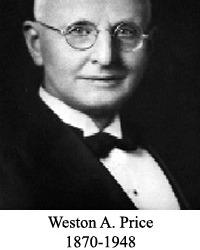
This guy was a dentist in the early twentieth century who became famous for warning about the dangers of diet changes happening at the time. Young people were less sturdy than they had been, and crooked teeth in kids was becoming more common. He traveled around the world to record the phenomenon, which was being caused by the introduction of cheap processed foods, especially sugar, white flour and vegetable oils. Promotion of these was displacing traditional diets and he documented the results as they happened.

The Weston A Price Foundation www.westonaprice.org
Traditional peoples highly valued ANIMAL FATS, MEAT, EGGS, POULTRY, SEAFOOD, BROTHS and ORGAN MEATS as necessary for raising strong children. They could see the results as colonialism and marginalization forced them to adopt inferior diets. Dr. Price proved that Vitamins A, D and K2 (the Price Factor) from animal foods are necessary for healthy growth, lifelong health and strong immune systems. He found NO traditional culture which practiced a Vegan diet.
Important books on Nutrition and Traditional diets: Nutrition and Physical Degeneration by Weston A. Price; Nourishing Traditions by Sally Fallon and Mary G Enig Phd, You Eat What You Are by Thelma Barer-Stein Phd, Good Calories, Bad Calories, by Gary Taubes, and The Big Fat Surprise by Nina Teicholz.
#traditional foods#bone broth#weston a price#native diets#processed foods#animal foods#animal fats#fat-soluble vitamins#childhood health#healthy children#dentistry#wapf
0 notes
Text
Fish, know it, cook it, eat it.
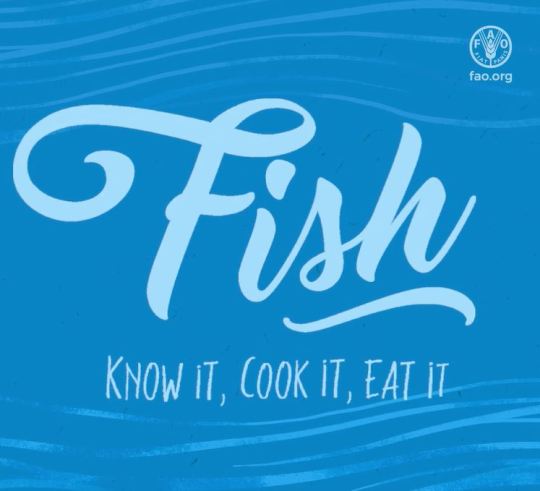
Eating fish is one of the great pleasures of life. This book stems from that notion: it contains dozens of recipes from all principal regions of the planet.

"Fish may not suffice to ensure global food security, but there will no global food security without fish: even as more than 800 million of us suffer from hunger, seafood products make up a fifth of the animal protein intake for nearly half of the world's population.
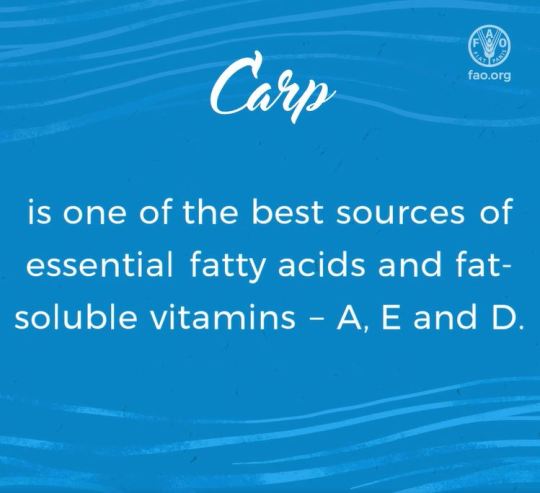
0 notes
Text
Me, getting slapped extra hard with the depression hammer for the past 2 months couple weeks: Why does everything suck so much lately? Why don't I have any energy or motivation? I know the seasonal depression is waiting in the wings, but the weather's honestly been pretty mild lately.
My vitamin D supplements, gathering dust because I forget they exist if I don't see them: ...gee, wonder why that is, dumbass.
#(not) fun fact: if you stay inside all day AND don't digest fat properly#your vitamin d levels will be in the absolute shitter bc that bitch is fat soluble!#I thought I was being tidy by having a designated cupboard for my vitamins and cold meds and such#instead I just shot myself in both feet bc I have the object permanence of a toddler#and it apparently it only takes a single day for me to forget a whole ass routine#brb gotta slap a bright pink post-it note on a cupboard so I can ward off Bad Brain mode with gummies
3 notes
·
View notes
Text
People who do zero sugar/fat diets when they have issues with energy due to having no calories/vitamins.
#people do know fat is what vitamins come with right?#they’re call fat soluble vitamins for a reason#plus sugar cuts outs your fruits so you get no water soluble vitamins either!
0 notes
Text
they need to make a multivitamin that doesn't make your head hurt soooooo bad
0 notes
Text
Vitamin E Benefits
Vitamin E is a powerful antioxidant that helps to protect cells from the damage caused by free radicals. It also helps to improve circulation and has anti-inflammatory properties. Vitamin E can be found in many different foods, including leafy green vegetables, nuts, seeds, and oils. However, it can also be taken as a supplement, either as a vitamin pill or an oil. If you are thinking of taking a vitamin E supplement, it is important to speak with your doctor first to make sure that it is the right choice for you. Some people may need more vitamin E than others, and supplements can sometimes interact with other medications that you are taking.
0 notes
Text
i just took one more anti-stress multivitamin than i was supposed to so. now i have additional stress
#these things are all placebo anyway#and there’s no fat-soluble vitamins or iron in it so like. it’s fine#but i am NERVOUS
1 note
·
View note
Link
Wondering whether or not avocados actually help you to loose weight faster and more effectively? Here are some benefits that will help you get to the answer.
#loose weight#weight loss tablets#fat burner#water soluble vitamin#Nutrition supplements#detox diet#burn belly fat#eating avocado#use of avocado#avocado for weight loss#best way to loose weight#fat loss tips#avocado nutrition
0 notes
Note
I really enjoyed your latest fic, sever the blight! But what really fascinates me are those nutrient cubes. What do you hc them being made out of? I remember in the fic someone mentioning them tasting fishy? And thinking about the r&d work that went into developing them is making my brain turn! Just Bruce developing a way to process, cook, and package the cubes, AS WELL AS running shelf life studies on them (I know he would, he's the type to run a 2+ year shelf life study, he would be that thorough). And the thought and care that went into making those cubes might be another way of Bruce showing that he cares for his children (in his weird way). If they get stuck/trapped somewhere for a long period of time, he's going to make sure he has a reliable, (somewhat) healthy, and safe food source for his kids until help comes.
Again, excellent fic!
Ahh thank you for asking about those! I think I wrote them that way half because I've been reading too much Star Wars fic and half because I'm a weightlifter about to go into another cut, so I've been thinking a lot about optimal nutrition.
My (admittedly non-expert) hc for the cubes was that they were made of complete proteins, omega 3's (hence the slightly fishy smell Clark notes) and some essential vitamins, while being as calorically dense and compact as possible. You need protein, calories, and fat for the fat-soluble vitamins, and you need it to be small, essentially.
Bruce's cubes kind of tell us several things about him:
He keeps more than a month's worth of calories in his belt at any time
He keeps those calories in a form that his children or other humans can consume
He knows the exact nutritional value of each cube and has a plan already reviewed to ration them, if needed
He knows how long he himself can go without the cubes before experiencing a go/no go point
He has, like you pointed out, tested these cubes to the point of perfection. They are optimized for both maximum output and minimal use of space.
The fact that the boys are used to the cubes, as Clark notes, means Bruce has fed them the cubes before. Either on missions, as snacks, or something else. Testing, perhaps?
He has, either intentionally or somewhat intentionally, designed the cubes to fulfill multiple nutritional needs. i.e., those of teens, growing children, adults, and adults with metahuman or enhanced abilities.
Bruce has likely experienced a time, or several times, when food has been scarce or when carrying optimal nutrition while fighting has been difficult.
You're exactly right -- there's always going to be a safe, bioavailable source of optimal nutrition for him and/or his kids within his belt at any given time. If he's alive, or they have his belt, they're safe for at least a few weeks.
It's a small cube, and his kids barely blink at it. But there's a whole world of care, service, and love wrapped up in that tiny little fishy protein cube.
#bruce my beloved acts of service example#myfic#theresurrectionist#sever the blight#asks#thank you friend!#tw discussion of weight loss/gain#tw discussion of calories#tw starvation#nutrition#me talking out of my non-science ass as usual#batfamily#batman#bruce wayne#dc
96 notes
·
View notes
Text
vegetables with dressing >>> not eating vegetables at all
most of us (myself included) do not eat enough vegetables. if something helps you eat and enjoy vegetables when you otherwise would avoid them, you should eat them with the thing on it.
the most heart-healthy options would be olive oil-based dressings and vinaigrettes, but cream-based dressings are fine too! it doesn't "cancel out" out all the good stuff you get like vitamins, minerals, and fiber you'll get by eating them, even if it adds on extra calories or a bit of extra fat. in fact there has been evidence pointing towards having fat alongside your vegetables (particularly leafy green vegetables) being helpful in your body's absorption of beneficial fat-soluble nutrients.
eat vegetables in whatever way you enjoy them most - for your health!
22 notes
·
View notes
Text
So to really oversimplify it, Calcium is what your body releases to signal your muscles and tissues to tense up, and Magnesium is what your body uses to tell your muscles and tissues to relax again.
An imbalance of these is BAD.
Too much or too little of either can stop your heart in extreme cases, and suddenly changing your serum/blood levels is particularly dangerous.
Part of why vitamin D is important but also why it's so fucked up supplements often contain magnitudes more than they claim they do, is because vitamin d so strongly impacts how much calcium -also iron- you will suddenly be absorbing from your food, which can trigger cardiac spasms [heart attacks with no clot].
This is why hard water causes muscle cramps and headaches, because it causes you to overdose on calcium, or alternately magnesium, depending on the hard water, location etc...
This is why "calcium channel blockers" relax heart muscle tension, lower your blood pressure and relax your muscles.
This is also why trying to relax your muscles more without lowering your blood pressure is fucking impossible. A problem for anyone with muscle tension but also low blood pressure. You literally cannot treat one without making the other a lot worse.
This is why magnesium supplements -IF YOU ARE DEFICIENT- can help with sleep, high blood pressure, pain and muscle tension.
This is also why -due to the physical feedback created by being physically unable to relax to your nervous system- magnesium can help with anxiety.
You need both for healthy bones too, btw, not just calcium supplements as you age.
Low calcium or too much magnesium can also cause slowed heart rate, missing heartbeats, dizziness, weakness and fatigue. HOWEVER, too much calcium can also cause skipped heartbeats and dizziness from a lack of proper circulation because your heart isn't relaxing enough between beats. Both are dangerous.
BOTH of these minerals can build up in your body and aren't like 'water soluble' nutrients in the body in the same way that vitamin C is for example where too much will just be flushed away, your body stores these bitches in your bones pretty obsessively, so it's a good idea to get your levels checked if you think supplementing either might help you. [Technically they are water soluble, but it's helpful to think of them as being like 'fat soluble' nutrients that your body will hold onto, just like, for bones and not fat... This is also why meat broth and meat in general is high in calcium, once life isn't holding the minerals in the bones it dissolves out into the meat.]
If you have problems with blood pressure, heart symptoms, tension or fatigue at all, it is a good idea to rule out low or high calcium or magnesium as a cause because it's a really simple thing to treat with supplements or dietary changes that doctors can't deny you once you have the information about your blood levels in your hands. You only need them to agree to check your levels here and there to make sure nothing is getting out of hand.
I'm not just saying "ask your doctor before supplementing" I am saying "Doctors are necessary idiots ask them to actually CHECK your blood levels before advising you on whether or not to supplement".
This is why I find it interesting that people with high blood pressure or chest pain or cardiac spasms are asked about their salt intake or told to avoid salt but aren't ever asked about their calcium intake. I'm kind of low-level pissed at all times that doctors don't check both of these mineral levels on a regular basis for everyone.
Having the right mineral levels, including these but also phosphorus and potassium and iron etc... has such a HUGE body-wide impact on things you would never guess they would impact so so badly, but they are like, the main components of the molecules your body uses to do everything, including like, signal nerves and move muscles. You use these things every time your heart beats and every time you breathe or have a thought, etc... They impact everything. Everything.
Hell a lot of lists of the minerals you need will straight up not even mention phosphorus, but your body uses phosphate groups to make ATP... You know, the molecule that is literally "energy" in your body at a cellular level. It is recommended that healthy adults get between 800 mg and 1,200 mg of phosphorus each day. And it's hard to source because most plant sources aren't bio-available unless you soak your grains [remember that trend of "activating" nuts and grains?... I like cokey-cola because is uses phosphoric acid in place of citric acid which gives it a dryer taste and helps my energy levels in ways not accounted for by the caffeine]. But also too much Phosphorus can pull calcium out of your bones and leave it free floating around your body to build up random places and cause problems!
Potassium is an important electrolyte in your BRAIN and without it you can't think critically and can be prone to all sorts of mental problems like confusion, depression, mental fatigue, running instinctively on autopilot and not engaging critically with ideas because you brain literally can't! Low Potassium makes you more susceptible to mental manipulation and lowers your defenses to negative thought patterns.
I know it can sound stupid and fake, but getting the nutrients you need really does impact your day to day health and specifically your energy levels and mood. Mineral deficiencies can cause depression, fatigue and anxiety and can make existing mental health problems so so much worse.
Kowing your micromineral levels is important! [I am sure trace minerals are important too but your body needs so little it's usually a lot harder to be deficient unless you have a very restricted diet or absorption issues].
Check your levels periodically with your doctor's help and make sure you keep them -not just- "in normal ranges" but have your doctor specify whether they are on the high or low end so you know where your wiggle room is to adjust accordingly depending on your symptoms and how those potentially reflect your personal body's needs. [ie: just because your iron isn't dangerously low doesn't mean supplementing it wouldn't help your energy levels, so long as you aren't getting too much, etc]
Btw this is also why starving yourself fucks you up. And it's why having a lot of food aversions gets tricky to manage. You need to eat. You need specific nutrients and not just calories [you need those too]. And by *need* I don't just mean you might feel slightly crappier in some vague abstract way, I mean you need it for your heart and brain to function correctly and for your muscles to move. [Your brain is you]
19 notes
·
View notes
Text
Let's explore the negative association of milk in Tamriel's Nordic culture.
So, basically, from the dialogue and other sources, we know that drinking milk within Nord cultures is associated with a number of negative perceptions, such as:
Milk is for children.
Milk is associated with weakness.
Milk is not a manly beverage.
This is evidenced by the lines from numerous NPCs in Skyrim.
If you have a disposition of -1 or lower with an NPC, they may say to you: "What do you want, milk drinker?"

There is also the Taunting Adventurer NPC in Skyrim, who is a randomly encountered warrior in the wilderness or in an inn. He says: "What's a milk drinker like you doing out here? Go home to your mother."
But it is worth noting that some Nords such as Rigurt the Brash from ESO oppose the concept behind the insult saying: "Milk-drinker. Why did that become such a terrible Nord insult, I wonder. Milk is good for you! I love the stuff! Not as much as I love mead, but it's a close second. Maybe third."

With that, it is reasonable to assume that some Nords avoid drinking milk to prevent being perceived as a cry-baby or a weakling by other Nords, and potentially even by themselves.
As we know, even in real life, milk is important for bone growth. When we delve into medical aspects, calcium is an essential extracellular cation required for muscles to surpass the action potential threshold, enabling contractions and therefore movement.
Skyrim, the homeland of the Nords, also experiences limited sunlight in certain regions. UV radiation from the sun is essential for the activation of Vitamin D from cholecalciferol to calcitriol. This fat-soluble vitamin is crucial for maintaining bone strength and a healthy immune system.
Basically, calcium is important for nerve conduction, blood clotting, muscle contractions, immune functions, and healthy bones.
But how would a race centered around strength and possessing a strong warrior culture maintain their constitution?
Skyrim is abundant with cheese, which is directly made from milk and is also rich in calcium. Digesting cheese breaks it down into its components, facilitating the absorption of calcium into the body.
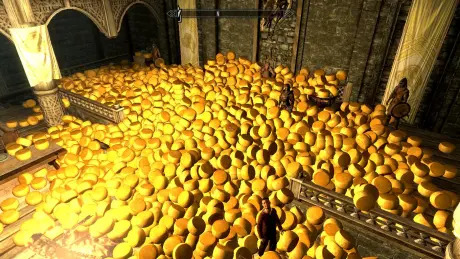
There is also a thriving fishing culture in Riften and Windhelm. Access to the Sea of Ghosts allows access to marine resources like fish and shellfish which could act as substitutes for calcium sources.
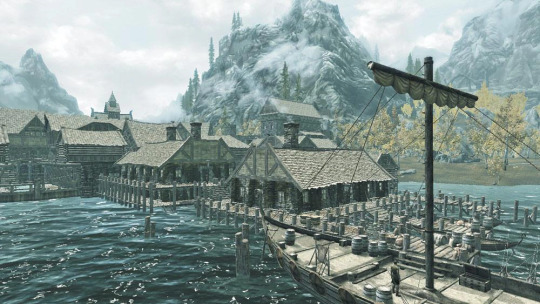
I understand that it's a fantasy world, but creating a believable fantasy world can indeed enhance the enjoyment of the experience. By grounding elements of the world in reality, it becomes more relatable and allows us to better connect with the characters and settings.
We can now conclude that Nords are able to maintain their warrior culture despite the cultural bias against milk, which is essential for numerous bodily functions.
#Tamrielic Tales#Gaming#the elder scrolls#the elder scrolls v: skyrim#tesv#skyrim#elder scrolls online#tes online#nords#lore#milk drinker#deep dive
85 notes
·
View notes
Note
Wait if the human body needs fats for protein absorption, do you have any idea what someone who can't process fat at all is supposed to do? I'm currently being evaluated for all kinds of possible diagnoses but so far my physician isn't sure what's wrong with me and if it's curable, but the gist is that I literally can't eat anything even slightly fatty without becoming severely sick and immediately having to run to the bathroom. So I can't eat any meat that isn't lean, I can't eat cheese, can't drink milk, I can't eat yoghurt that isn't advertised as 0 fat, and I can't use oils at all either.
From what you're saying about fats, that sounds...less than ideal. Considering I don't know for how long I'll be forced to live this way or if there's anything that can fix it at all, do you know if there's anything I can do to prevent the rabbit starvation you speak of?
(referring to this post)
Oh, wow! I’m sorry, that sounds frustrating and stressful.
I want to be clear: I’m an archaeologist, and my primary understanding of this comes from an archaeological and evolutionarily perspective, not a modern nutritional one. Your doctor and your nutritionist will know a lot more about your case than I do.
That said, rabbit starvation/protein poisoning is only really a concern when lean meat makes up the majority of your diet. Not the majority of the meat in your diet, the majority of your diet, period. It’s a topic of interest among archaeologists in particular because it would have been a perennial concern in the winters during the Ice Age: when hunting animals with lean meats would have made up a large portion of early humans’ and Neanderthals’ diets during a Paleolithic winter. Historically, this tends to happen only in the winter in tundra and subarctic regions when grains, fruits, vegetables, nuts, and fish aren’t available. There’s a reason it’s also called mal de caribou.
Carbohydrates, sugars, fruit, and vegetables give you a much more balanced diet and help make up for deficiencies in other areas. And modern nutritional supplements, fortified foods, and multivitamins also help stave off many historical areas of malnutrition. If you are eating a modern spread of foods, even without fat, you are very unlikely to get protein poisoning. You might get constipated when you eat the meat, though.
My understanding is: proteins get digested faster than fats. So if you eat high-protein lean meats, they can move through your system quickly, without your body having time to extract all the amino acids and all the nutrients from them. And then the undigested bits can build up in your colon and make you feel constipated. Fat is digested more slowly, and when eaten with protein, allows your body more time to extract more and fuller suite of nutrients from the protein. Possibly there is also an emulsification aspect going on as well, I’m not positive and it’s hard to find good explanations that aren’t diet-culture-focused. (Fat also does other important things in your body with providing long-term slow-burning energy, padding your organs so they don’t impact against other parts of your body, and absorbing fat-soluble vitamins and such; again, I’m not a nutritionist, and I don’t super understand the details.)
But dietary fiber can also slow down digestion, and can help give some of those same digestive effects. (Nixtamalized) corn+beans+squash is a very traditional diet of the Americas because it gives the whole suite of necessary amino acids without requiring a whole lot of external additions. Also, I get the sense that fish like salmon work differently because of omega-3 fatty acids? So there are for sure things you can supplement with.
My post wasn’t intended to make people worry; modern nutrition and food availability means that there is a lot of flexibility you can have in your diet if you’re allergic to one aspect of it. It was meant to say, even “unhealthy” fats have an important place in a balanced diet, and can do good things for you besides just tasting good, and that craving it may well mean there’s something in there that your body wants. But if fat genuinely isn’t good for you for medical reasons, there are absolutely ways of dealing with that. Ultimately, variety is the most important part.
#I AM NOT A DOCTOR#I want to make it clear that my understanding comes from an archaeological place#And the evolutionarily needs we developed as humans#Definitely ask your doctor or a nutritionist how to stay healthy#But I really don’t think you need to worry about rabbit starvation if you are eating plenty of grains and fruits and vegetables as well#asks#featherymainffins#Good luck though that sounds stressful
13 notes
·
View notes
Text
Molokhiya slimy soak (prose, cooking)
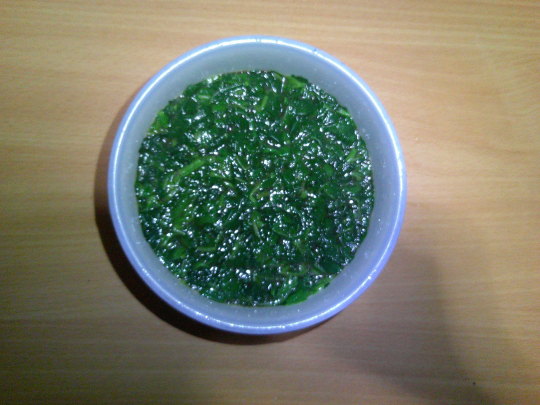
Remove the thick branches of the molokhiya and boil them in boiling water for 1 minute. Beat them with a knife, cut them into small pieces, and add slime (the slime comes out when boiled).
Add the molokhiya to a mixture of soy sauce, mirin, mustard (paste), and olive oil, and mix well. Serve as is.
Molokhiya is rich in nutrients, and olive oil makes it easier to absorb fat-soluble vitamins such as A and E. It also contains vitamins B2, C, K, folic acid, and calcium.
Note: Nalta jute, Jew’s mallow, Tossa jute (alias)
Rei Morishita
2024.08.20
モロヘイヤぬめりお浸し(prose , cooking)
モロヘイヤの太い枝を外し、熱湯で1分茹でる。こ���を包丁で叩いて切り、みじんにし、ぬめりを加える(もともとぬめりは、茹でると出てくる。)。
醤油、味醂、芥子(ペースト)、オリーブオイルを混合した液にモロヘイヤを入れ、よく混ぜる。そのまま食卓へ。
モロヘイヤは栄養豊富で、オリーブオイルを使うことによってビタミンA、ビタミンEなどの脂溶性ビタミンを吸収しやすくできる。他にビタミンB2、ビタミンC、葉酸、ビタミンK、カルシウムなども含んでいる。
7 notes
·
View notes
Note
Where do you get your vitamins from? I need vitamins but idk where to get them from or what stores have them or what brands I should use
Honestly there’s a wide variety of what you can get or should get and I don’t know your specific vitamin needs but EVERYONE should take a multivitamin. If you’re assigned female at birth the best multivitamin is actually a prenatal one. If you’re assigned male just find a multivitamin that says it’s for men. Obviously some brands are better than others but they are significantly more expensive. I take the NEEDED prenatal vitamin, iron, magnesium and collagen all which are $50 for a 30 day supply which is obviously too expensive for a lot of people. If you’re in America any grocery store with a pharmacy (such as Walmart or smiths) will have them.
Just some tips when it comes to vitamins
-calcium and iron cannot be absorbed at the same time so they should not be taken at the same time
-Vitamin D and calcium work better when taken together
-Vitamins A, K, E, and D are fat soluble which means you need to eat something with a couple of grams of fat for them to be absorbed by the body
-Most people in the United States are deficient in vitamin D
-Don’t start taking random vitamins in their individual forms such as potassium magnesium unless you know for sure that you are deficient as too much will cause heart problems
8 notes
·
View notes
Text
~ MATCHA VS GREEN TEA ~
Both matcha and green tea come from the same plant, *Camellia sinensis*, but they are processed differently, leading to distinct benefits. When it comes to weight loss and calorie content, here's how they compare:
1. Nutrient Density
Matcha: Matcha is made by grinding whole green tea leaves into a fine powder. This means you're consuming the entire leaf, which gives you a higher concentration of nutrients, including antioxidants, vitamins, and minerals. One of the key antioxidants in matcha is EGCG (epigallocatechin gallate), which is known for boosting metabolism and aiding in fat burning.
Green Tea: Green tea is typically steeped, so you only consume the water-soluble components of the leaves. While green tea still contains EGCG and other beneficial compounds, the concentrations are lower than in matcha.
2. Calorie Content
(Of course make sure to take into consideration everything you use)
Matcha: A serving of matcha (about 1 gram) has roughly 3 calories. However, because matcha is more concentrated, you might consume more per serving, depending on how it’s prepared.
Green Tea: Plain brewed green tea is almost calorie-free, with less than 2 calories per cup.
3. Caffeine Content
Matcha: Matcha contains more caffeine than green tea, roughly 35 mg per gram of matcha, compared to 20-30 mg per cup of green tea. The higher caffeine content can contribute to a slight increase in calorie burn, especially when combined with physical activity.
Green Tea: With lower caffeine content, green tea is less likely to give you the energy boost matcha provides, but it can still contribute to weight loss over time with regular consumption.
4. Impact on Weight Loss
Matcha: Due to its higher concentration of EGCG and caffeine, matcha is often considered more effective for weight loss. The combination of these compounds may enhance thermogenesis (the body’s process of burning calories to produce heat) and fat oxidation.
Green Tea: Green tea still supports weight loss, but at a potentially slower pace compared to matcha. Its lower concentration of active compounds means you might need to drink more green tea to achieve similar effects.
5. Satiety and Appetite Control
Matcha: Because matcha is consumed as a whole powder mixed in water or milk, it might help you feel fuller for longer, which can be beneficial for appetite control and weight management.
Green Tea: Green tea might not have the same effect on satiety since it’s consumed as a liquid without the fiber content found in matcha powder.
~Conclusion~
If your primary focus is on weight loss, matcha may offer more potent benefits due to its higher concentration of antioxidants, caffeine, and other nutrients.
However, green tea is still an excellent option for those looking to lose weight and enjoy a low-calorie, antioxidant-rich beverage.
#a4a diet#tw ana bløg#a4a diary#anor3c1a#ed but not ed sheeran#i wanna be sk1nn1#ed diet tips#thinspø#4n@diary#4n4t1ps#4n4blr#ednotedsheeran#tw ed ana#bulim14#3d di3t#3d not sheeran
8 notes
·
View notes